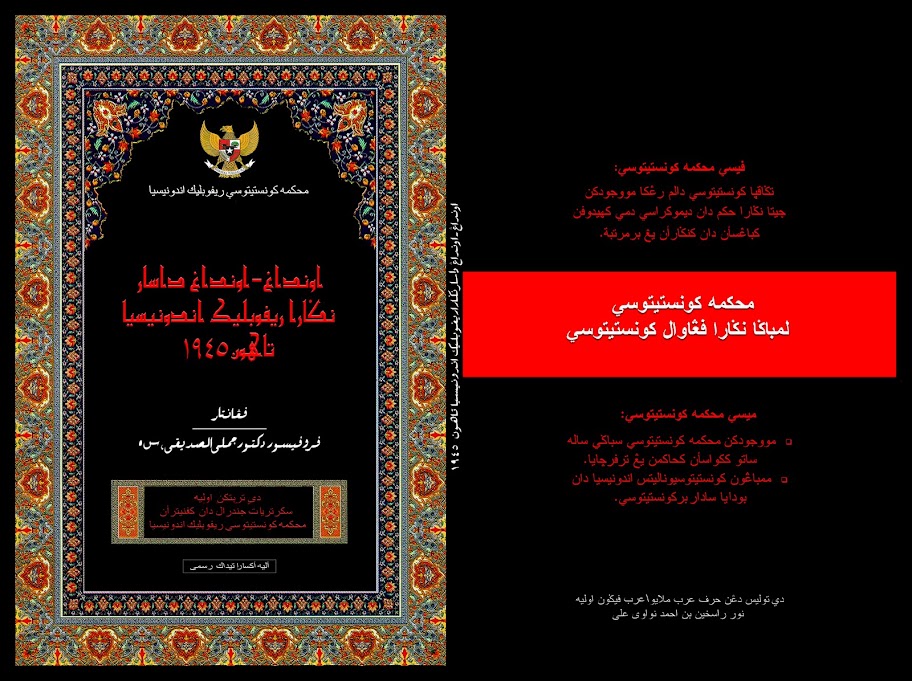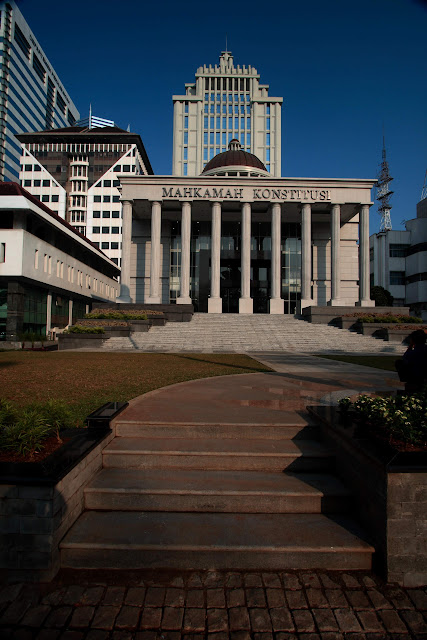Act 35/2009 on Narcotics contains the definition of ambiguous
regarding drug abuse. It was stated by Asmin Fransisca when Petitioner
was asked as expert in the plenary judicial Narcotics Law (Case Number
48/PUU-IX/2011) Thursday (09/22/2011) at the plenary chamber of the
Constitutional Court.
Lecturer Faculty of Law, Atma Jaya and Indonesian Coordinating
Coalition for Drug Policy Reform (ICDPR) This article mentions the three
definitions of matter in which he confused the Narcotics Act, namely
the definition of Article 1, item 13, Article 1 number 15, and the
Explanation of Article 54.
"The confusion occurs in Article 1 number 13 and 15 in this Act may
be abusers of narcotic addicts and drug users with a variety of factors,
potentially very large to be abusers as well. Though these two
definitions have different consequences, namely the first is the
rehabilitation, while the other is the definition of punishment in
prison, "explained Frances.
This confusion, Frances continued to complicate the practice of law
enforcement, particularly police and prosecutors. Ambiguity of this
definition makes legal certainty for addicts and abusers is not
guaranteed, when the law enforcers to implement a single criminal
prosecution article, namely Article 112 which explains about the
ownership, control of narcotics without rights or against the law.
Confusing
Narcotics Act material, according to Frances was quite confusing. On
one side of the abusers and addicts have a right to health and social
services through the rehabilitation process which will be determined by a
judge later. However, on the other hand, they are potentially huge for
the convicted and lose the right to rehabilitation services.
Whereas in the Narcotics Act Article 127 Article 127 expressly
provides that judges shall take into account the provision of
rehabilitation in accordance with Article 54, Article 55 and Article 103
for abusers. "This means, the nuances of the right to health, health
services, adequate attention through this legislation," said Frances.
In contrast to Article 112 of the Narcotics Act governing people
without rights and unlawfully possess, store, and control the supply of
narcotics, which closes the possibility of our users or addicts in which
a breach of Article 112 for direct access to rehabilitation services
program. But in practice, from various literature studies have been
conducted, many law enforcement agencies use these two chapters in the
file examination simultaneously. Article 112 is also a chapter that is
widely used for anyone, that is for addicts, abusers, or dealers, as
well as narcotics producer.
This has led to confusion in law enforcement and creates a position
between addicts and drug users, victims of drug abuse, with
manufacturers and distributor are the same. "The action and effect the
crime is very different. In Article 112, there are criminal penalties
and fines are high enough that very expensive. Quite strange if criminal
sanctions are high and very expensive fines imposed on addicts or
abusers, "said Frances postulated.
The weakening of the Court authority
On the same occasion, the Court Case Number 49/PUU-IX/2011 also hear
about the judicial Law 8 / 2011 on Amendments to Law 24/2003 on the
Constitutional Court (Law Court). Former Constitutional Court Justice,
who was asked as an applicant, wants a strengthening of the
Constitutional Court Law. However, the opposite is true, that is
weakening. It is strengthening it in order to allow checks and balances.
"Changes made should be the actual empowerment of state institutions to
perform their functions within the mechanism of checks and balances,"
said Maruarar Siahaan as usually called Maru.
Furthermore Maru said, the authority of state institutions provided
for in the 1945 and then made arrangements so that further weakened the
norm of law, is a separate constitutional issue. "How could a delegated
authority from the constitution formulated re-formulated so it does not
fit with the spirit of the constitution itself," the proposition Maru.
To note, on (05/08/2011) and the Court held a preliminary hearing for
the two cases mentioned above. Mohammed Zainal Arifin, Petitioner’s
attorney argues case Number 48/PUU-IX/2011 Article 45A and Article 57
paragraph (2) letter a and c of the Constitutional Court ruling to close
the space of ultra petita (giving the decision beyond what the
Petitioners filed). The provision is detrimental to Petitioner’s
constitutional rights, because the likely effect on the Constitutional
Court did not grant the application for judicial review filed by the
Petitioner Narcotics Act. (Nur Rosihin Ana / mh/Yazid.tr)







